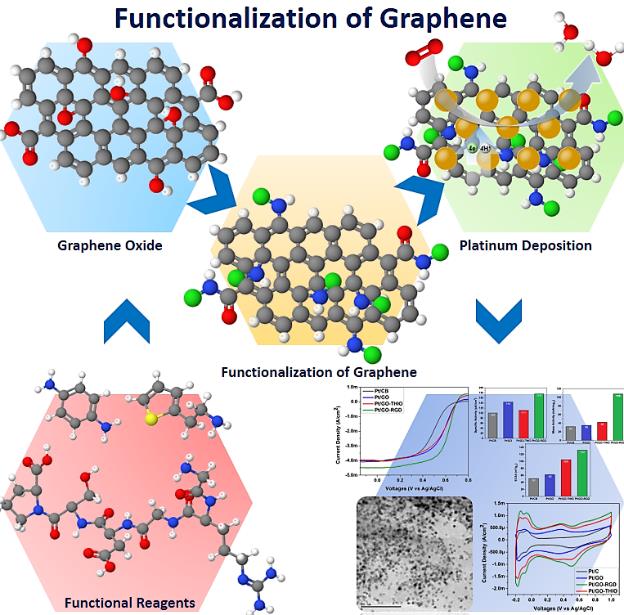![]()

Graphene based nanomaterials are highly important because of their unique properties such as high contact surface area, high electrical conductivity and their enormous stability. Graphene and related materials have been used as promising catalyst supports in energy conversion and storage applications. In our research, in order to produce more efficient catalyst supports, we successfully modified graphene with various active functional groups such as amine, thiophene, fluorosilane, and RGD peptide by mono and multi-functionalization of graphene oxide. Further, modified polyol process was used to obtain specifically guided growth of Platinum (Pt) nanoparticles on these modified graphene surfaces. Consequently, better dispersion of Pt nanoparticles were obtained with delicate control-ability. As a result, the electrocatalytic activity (ECSA and ORR) was greatly enhanced. These promising nanomaterials can serve as potential candidates for high performance polymer electrolyte membrane fuel cells.







